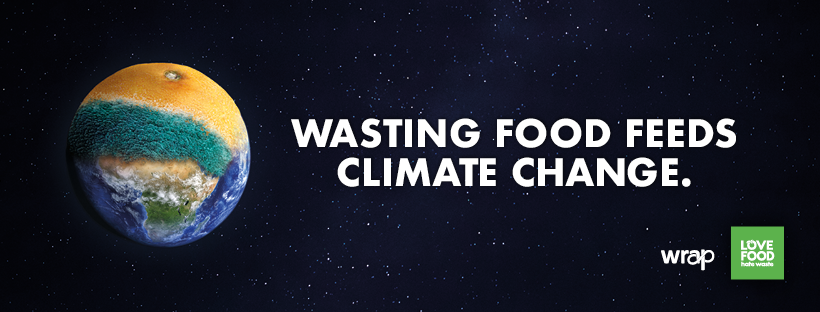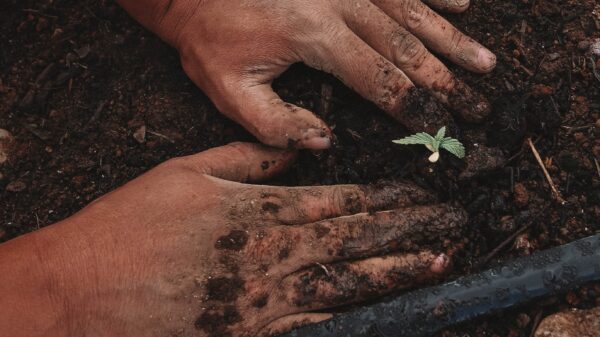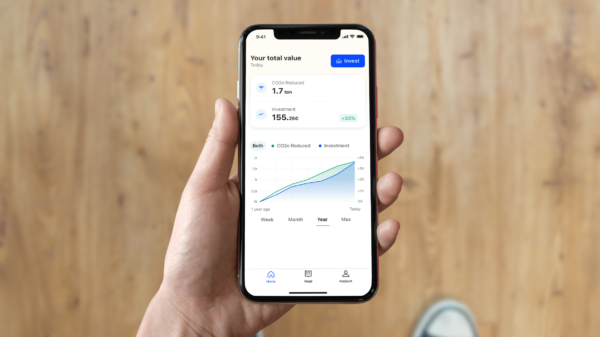Week-long initiative shows UK that wasting food feeds climate change (1-7 March 2021).
Environmental charity WRAP has launched the UK’s first national week of action to tackle household food waste. Delivered under their Love Food Hate Waste brand, Food Waste Action Week is aimed at mitigating the devastating impact food waste has on the planet.
It starts at home
UK households produce around 70 per cent of the UK’s 9.5 million tonnes of food waste every year! To tackle this, Love Food Hate Waste is asking people to take part in the Food Waste Action Challenge to make sure no edible food ends up in the bin. Headed up by cook, TV presenter, and author Nadiya Hussain, the seven days of activities will be packed full of tips and tricks to cut waste.
Love your leftovers
A gargantuan 6.6 million tonnes of food waste comes from our homes each year in the UK, at a cost of £14 billion. Of that, 4.5 million tonnes is food that could have been eaten, which works out to around eight meals per household each week*. This ‘edible’ element of household food waste is responsible for 14 million tonnes of CO2e alone – as much greenhouse gas produced as flying from London to Perth more than 4.5 million times!
“Being at home more this last year has given many of us – including myself – an opportunity to reassess our relationship with cooking. Most of us don’t realise it, but wasting food is a major contributor to climate change. And it isn’t just the leftovers on our plate to consider but the many resources that go into producing our food, like water and land.
“If we each make small changes we’d dramatically reduce the amount of food that ends up in the bin, and really can make a difference. From avoiding buying or preparing too much to storing food correctly, Food Waste Action Week is about helping people make the most of their food, and through our actions – help protect our planet.”
Nadiya Hussain, cook, TV presenter and author
Cooking more ‘lockdown’
According to 2020 WRAP research** on the UK’s food habits during lockdown, being confined to our homes has resulted in an increase in behaviours such as batch cooking and meal planning, which help tackle food waste. But the latest insights suggest that food waste levels are likely to rise again as we emerge from lockdown. So why don’t we all be a little more ‘lockdown’ in the kitchen and carry on the good work?!
“Climate change is happening now and is the greatest threat to our planet, and our future generations. We must act, fast. Wasting food has a huge contribution to global emissions but is often overlooked or ignored. We are so used to wasting food that we’ve forgotten its value, and the cost that feeding our growing global population has on the natural world. Food Waste Action Week is about empowering everyone to act because like it or not, we in our homes are the most significant part of the problem. So, it’s down to us all to be part of the solution too, and this is one environmental issue that we can all tackle, and with minimum effort.”
Marcus Gover, CEO WRAP
Small but mighty changes
Here at Sustainacity we love a little green step. Here are some that can make a massive difference to the fight against climate change (we were shocked reading these!):
- If every UK household stopped wasting food for one day, it could do the same for greenhouse gas emissions as planting 640,000 trees per day (around 230 million per year).
- Almost 280 tonnes of poultry goes to waste in the UK every day, if we stopped wasting poultry, we could do the same for climate change as planting nearly 6.6 million trees every year.
- We throw away the equivalent of 3.1 million glasses of milk every day. If we used every drop, we could do the same for climate change as planting nearly 6 million trees per year.
- Every day 4.4 million potatoes go to waste in UK homes. If we all stopped wasting these potatoes it could do the same for greenhouse gas emissions as planting 5.4 million trees per year.
- 20 million slices of bread are thrown away at home in the UK every day. If we stopped wasting bread, it could do the same for greenhouse gas emissions as planting 5.3 million trees per year.
So the good news is…everyone can make a difference!
Be a waste warrior!
Take part in Food Waste Action Week Challenge and share your top tips on Instagram using #FoodWasteActionChallenge and @lfhw_uk. Whether it’s storing food, using up leftovers, or making sure none of it ends up in the bin – make sure you show that waste is a dirty word around here!
*Based on 4.5 million tonnes of wasted food, 420g meal weight and 27,576,000 households.
**The WRAP report Life under Covid-19: Food waste attitudes and behaviours in 2020.










